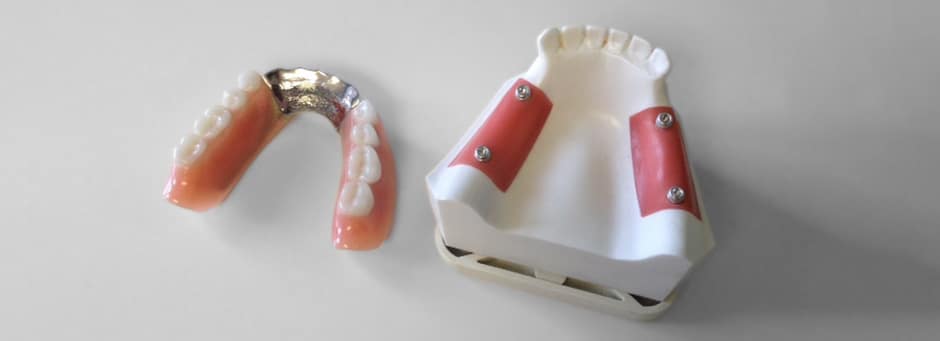It’s always kind of fun to start punching something into Google and see what’s suggested, even more so when you are legit scanning for research information on a subject that’s close to heart. As a dentist, I don’t tend to google dentistry questions, 80’s wrestling is more my style, but I do get that the Internet is there helping us do everything from learning about fly fishing to fixing the kitchen sink.

Expanding our knowledge on things we’re not experts on has never been easier. There’s no heading to the library or pulling the encyclopedia Britannica off the shelf, no thumbing through pages of a dictionary, or looking up a number in a phone book. Everything we need is stuffed into our smartphones.
A lot of times we’re just trying to find solutions to problems (create world peace, figure out what my wife really wants to eat for dinner, fix that leaky faucet). And we’re all especially quick to search for answers when it comes to the kinds of problems that cause pain or discomfort.
There are a lot of doctors and dentists who feel “paging Dr. Google” can do more harm than good, but we all do it. HubSpot estimates Google processes approximately 63,000 searches every second. Accurate? Sounds about right to me. A study by eligibility.com found 89 percent of patients nationwide Google their health symptoms before going to their doctor.
I’m okay with you googling oral health questions, patient education is a big deal (that’s why I wrote this article)! We want you to know as much as possible. So Google away! But then go see an actual dentist to see how accurate you’ve been in your quest for an assisted self-diagnosis. We’re here to pick up where Dr. Google left off and let you know what’s accurate, what isn’t, and what your specific situation is (and options are).
I was recently diving down some particular google search rabbit hole when I decided to take a left turn at Albuquerque and stir up some denture questions. Wondering what might be suggested for common denture wearer concerns, I typed in can dentures cause to see what Google thought might be helpful and I saw a pretty robust list of denture wearing concerns appear:

Sometimes Googling something simple (are my dentures causing my headache) can lead you into a lot of suggestions that, never seen, wouldn’t have occurred to concern you. It can be a slippery slope, see cyberchondria for more info.
As For Those Common Denture Concerns & Complaints
The quick answer is; yes, to all of the above.
Dry mouth isn’t really caused by dentures, but a dry mouth causes issues for denture wearers. Xerostomia, dry mouth, is a lack of saliva and saliva is needed for your dentures to adhere properly (keeping those dentures in place is essential to form and function).
The reality is that any kind of tooth loss and/or a poorly fitting denture affects, well, a lot. I’ve written about the effects loose dentures can have before. Everything from your bite, your jawbone/facial structure (through bone loss), and muscle atrophy (or overcompensation) is negatively impacted, both functionally and esthetically.
Tooth loss can create a domino effect on both your physical appearance and quality of life. And sometimes dentures can create a slew of not-so-fun secondary medical issues – headaches, earaches, gas, and bloating, (the latter of the two being personally worth the short term return on investment after some beer and brats, but definitely less fun long term and sans greasy food and warm Heineken).
Can dentures cause headaches and earaches?
Yes. Poorly fitting dentures can cause the bite to misalign which increases stress on the surrounding joints and muscles in your face, the primary one being the tempomandibular joint. (Jaw pain and TMJ issues). Stress and tight muscles in most places, let alone the part of your body that does all of the thinking and planning, is going to act like rocket fuel for a headache and/or earache. Unfortunately, sinus issues are also an added ‘bonus’ to this equation.
Can dentures cause gas and bloating?
Yes. The reality is that poorly fitting dentures can cause an excess swallowing of air. Quick science lesson sidebar; the air we breathe in is about 78% nitrogen and 21% oxygen (with trace amounts of other gases). We absorb the oxygen into our body before it makes it to the intestines, but nitrogen passes through via the intestines (which is where the trouble starts). Obviously everyone swallows air while eating and drinking, but because the mouth produces increased levels of saliva in response to a loose denture, it triggers a person to swallow more – even if they aren’t eating or drinking. Poorly fitting dentures can also trap air bubbles in the extra saliva which can have the additional side effect (or party trick) of extreme burping.
Can dentures cause things like thrush and canker sores?
Yes. Not typically all at once, thank goodness, but yes, denture wearers can experience oral conditions such as thrush and canker sores. Thrush, a yeast/fungus infection (candida) most common on an upper denture and/or tongue, is an increased risk for denture wearers. It can only be treated with anti-fungal medication and unfortunately patients with removable dentures are sometimes prone to reinfection.
Canker sores, aphthous ulcers, can appear for a number of reasons but it is certainly possible that ill-fitting dentures can contribute and exacerbate ulcers inside your mouth. If you also experience a fever or they haven’t healed on their own after 10 to 14 days, definitely go see your dentist.
Can dentures cause changes in physical facial appearance?
- Pointy Witch Chin?
- Monkey Mouth?
- Horse Face?
Monkeys, Witches & Horses, oh my!
Yes, a poorly fitting denture can also have significant and visible, long-term repercussions to your physical appearance (which might improve your chances of being cast in a Wizard of Oz re-make, but it can also be kryptonite for even the hardiest of egos). For more, see avoiding the dreaded denture face article.
The upper and lower ridges of your jaw that a denture sits on resorb back into the mouth over the years, and the dentures just follow those ridges, which results in that classic denture wearer ‘witchy look’. Here’s the thing; the shape of your face relies on a dynamic partnership between muscle tissue, fat and bone. Unfortunately, when bone starts to recede, so do the muscles and then gravity takes care of the rest. This means that the lower face height (the bit between your nose and chin) shortens and sinks.
The muscles of the face in a relaxed state usually keep the lips together and teeth slightly apart (about 3-5mm) which is called the ‘free-way space’. In a sustained resting position, there is minimal electrical activity that’s happening in the facial muscles to help maintain muscle tone. This is probably the biggest contributor (aside from smoking and possibly a career detonating bombs) to facial aging, because the skin around the face and neck sag.
Let’s face it, sagging and premature aging isn’t an appearance goal too many of us are actively pursuing, although Keith Richards is certainly giving it his best effort. This is why correctly made dentures can have excellent results for facial support by regaining muscle tone around the face and neck. They function by reducing the amount of ‘travel’ between upper and lower teeth during eating. Face height is restored and facial muscle tone is gained, thereby minimizing the ‘Punch and Judy’ look. The good news is that preventing ‘facial collapse’ by replacing lost teeth with dental implants that support a denture is more successful and cost-effective than treating facial collapse once it has occurred – unless of course you live in Beverly Hills.
How Implant Supported Dentures Could Be Your Answer
So, the reason I detailed some common denture concerns is because the best way to resolve these issues is with something that has the least probability of mobility in your mouth. Ta da! Modern dental technology has evolved, giving us the implant supported denture. I’ve written about dentures and implants before, but to really understand the benefits of implant supported dentures, it’s important to understand what they are and how they work.

Basically a dental implant is an artificial tooth and root system that looks and functions like a natural tooth. The implant root is made of metal titanium, which is surgically placed in the jaw bone and a crown/tooth is attached to the top.
When it comes to a denture that is supported by an implant(s), the implant root is placed in exactly the same way and then an abutment (or post) instead of a crown/tooth is attached to the top of that. The complete denture is then snapped onto the abutment(s). For maximum stability and function, there are typically 4 dental implants used to secure a denture to the jaw.
Probably one of the most significant health benefits of having a denture that is supported by implants is the stimulation it provides to the jawbone. As previously explained, missing teeth mean the bone recedes unless some other form of stimulation is present. The implants prevent bone atrophy allowing it to maintain shape and stability. This is also the reason why traditional, removable dentures require ongoing adjustments to reflect the recession occurring in the jawbone. And also why the longer you wear removable dentures, the harder it becomes to eat certain foods as your ability to bite and chew becomes compromised due to the bone shrinking.
With implant supported dentures you have 3 times the biting force at your disposal. Foods with seeds can get caught and stuck under removable dentures (and you thought a pebble in your shoe was annoying), and some hard foods are totally off limits because they can cause damage to a denture. And chewy or sticky foods could actually cause a denture to detach from your gum (I used to be mortified as a teenager when a rubber band from my braces would snap and shoot out of my mouth at another person, I can’t even comprehend having a denture fall onto the family Thanksgiving dinner table). Bottom line, no food should ever be off limits because of your teeth (unless it’s some of that British Marmite that my wife likes to spread on her toast – that stuff is begging to be off limits!).
She Sells Sea Shells . . .
In addition to the physical benefits of using implants to secure a denture, there are many more cosmetic advantages, both visual and audible. With better stability, an implant supported denture provides clearer enunciation of speech, particularly around the “s” and “shh” sounds, which tend to be a dead giveaway of a removable prosthesis. This is because there is no slipping or shifting of the denture once it’s been attached, in fact your dentist is the only one who can (please do not try this at home folks) remove it. You also never have to worry about your denture giving you a pinch to the gums (think like a paper cut to the mouth).
Goo Be Gone!

So you’ve all seen the ads for Poli-Grip on TV, it’s messy to use in and outside of your mouth (if you’re prone to gagging, denture adhesive is not going to be your friend). Not to mention you have to scrub everything off with a brush each night before reapplying the next day. Plus you may as well just add it to your auto-order on Amazon, because you’re going to have to keep buying the stuff for as long as you’re wearing them. With an implant supported denture you can just brush your teeth like you normally would before going to bed – way less mess and maintenance.
In the absence of natural teeth, dental implants (and implant-supported dentures) are one of the best ways to save your jawbone and prevent all of your worst internet search engine nightmares from coming true.
If you are interested in exploring implant supported dentures and how they might benefit you (or maybe you’ve gone down an Internet rabbit hole of your own and have even more questions), give the office a call to schedule a consultation.
I might not be Google, but I can certainly answer pretty much any question you have on this subject!





